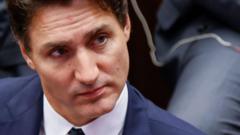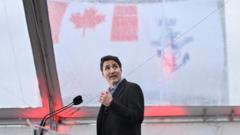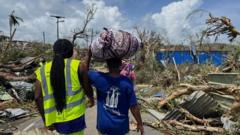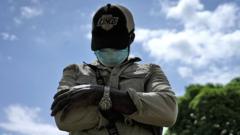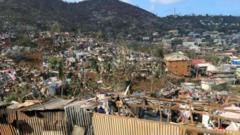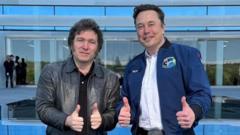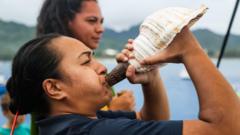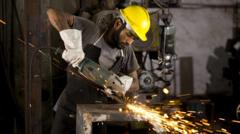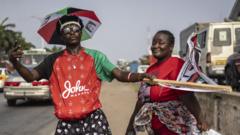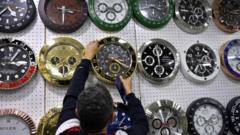As Ghana approaches its pivotal elections, citizens are grappling with significant economic challenges compounded by political choices. The electorate has the option to reinstate former President John Dramani Mahama, who led the nation from 2012 to 2016, or to support current Vice President Mahamudu Bawumia. Recent economic turbulence, marked by rising inflation, spiraling national debt, and increasing unemployment rates, has fueled public discontent, particularly among the youth. The upcoming election represents a decisive moment for both the ruling New Patriotic Party (N.P.P.) and the opposition National Democratic Congress (N.D.C.), as voters weigh their past experiences against the pressing need for effective economic reform.
Ghana's Economic Crossroads: A Choice Between Two Leaders

Ghana's Economic Crossroads: A Choice Between Two Leaders
Ghanaians face a critical election decision as they seek solutions to a struggling economy while navigating political rivalries.
With Nana Akufo-Addo stepping down after two terms, the upcoming election on Saturday signals a crucial juncture for Ghana. The country is experiencing one of its most severe economic crises in decades, with inflation rates soaring and the cost of living becoming increasingly burdensome for citizens. On one side, John Mahama, the 66-year-old former president seeking to reclaim his post, believes he can address the myriad issues plaguing the economy, while his opponent, Mahamudu Bawumia, aged 61, is positioning himself as a fresh alternative with ideas built from eight years of experience in Akufo-Addo's cabinet.
Both candidates represent the longstanding political rivalry between the N.P.P. and the N.D.C., which have alternated power since Ghana transitioned to multiparty democracy in 1992. The economic landscape, heavily influenced by Ghana's status as Africa's leading gold producer, is marred by challenges such as environmental degradation from illegal mining operations and widespread citizen protests driven by economic frustrations. Ghanaians are thus faced not only with choosing a leader but also with the urgency of addressing a faltering economy riddled with complex crises. The decision in this election could significantly shape the future of Ghana's economic recovery and political landscape.
Both candidates represent the longstanding political rivalry between the N.P.P. and the N.D.C., which have alternated power since Ghana transitioned to multiparty democracy in 1992. The economic landscape, heavily influenced by Ghana's status as Africa's leading gold producer, is marred by challenges such as environmental degradation from illegal mining operations and widespread citizen protests driven by economic frustrations. Ghanaians are thus faced not only with choosing a leader but also with the urgency of addressing a faltering economy riddled with complex crises. The decision in this election could significantly shape the future of Ghana's economic recovery and political landscape.


